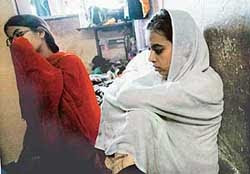
Expulsion of Jaswant Singh from BJP shows that how much we have became intolerable toward different and difficult views.A society progress with debate ,conflict ,different views not with just uniformity of opinions .Jaswant Singh has the whole right to express his opinion ,he never says that this is his party's views .So BJP must not take the decision to expel him.This is like that no one can criticise no one -the true autocratic situation. In congress you can't criticise Nehru- Gandhi family, in BJP you can't praise Jinnah,or senior leadership.Just accept everything as it is.If this is the situation then where is democracy.J L Nehru himself said that in democracy one must have the ability to tolerate opponent's view, which we are loosing very fastly and in its place CHAMCHAGIRI is becoming very popular.Media should also not blow this out of propotion.Different views of a person is very important for the development of mind ,one must try to think at a subject from different angles.Anybody in politics is for power purpose not for charity purpose either it be Jinnah or J L Nehru. No one is holy cow but we must try to look at them from different angles not in a black-white manner.Jinnah may be the symbol of Hindu-Muslim unity but he was also the person who demanded for Pakistan- a separate nation for muslims. What might be the reasons for which Nehru agreed to have partition and at the same time promised that muslims in India will remain safe.This shows the complexity of human beings's complex decision making nature and admiration for power.This must be look in a different manner. And I think Jaswant Singh only tried to do that.He should not be expelled at least for expressing his views.You may agree with him or you may not.About his view on Patel many people may not vouch for his idea but at least can hear it for sake of hearing
